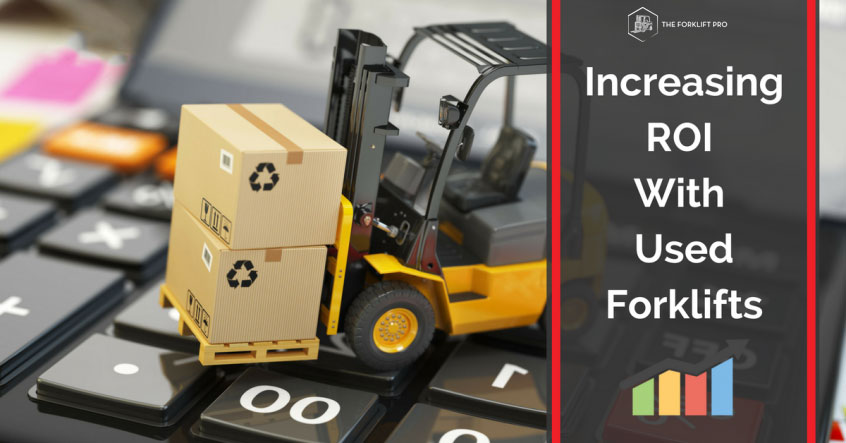Investing in quality used material handling equipment is one of the best choices you can make for your customer’s bottom line. The decision to purchase used forklifts over new forklifts will help increase efficiency, cut back on manual labor costs, and recoup initial investment costs quickly.
An essential part of a dealer/customer relationship hinges on their ability to find the best deals on reliable material handling equipment in an effort to increase return on investment within a shorter time period. Maximizing your customer’s budget while finding the best forklift for the job is essential to establishing yourself as a trusted material handling dealer.
Here’s how used forklifts, paired with extensive machine knowledge and great customer service, can help bolster your customer’s ROI and position you as their trusted dealer.
Enormous Savings
Pre-owned forklifts can be close to half of the price of a new machine. Depending on your budget, you may get more “bang for your buck” by purchasing multiple used forklifts with the price equivalent of one new forklift. Contrary to popular belief, maintenance also tends to be significantly less expensive on used models.
Longer Lifespan
If your operations are suitable for electric forklifts, they are the most lucrative option for long-term use and profitability. Unlike newer gas models, you don’t have to factor in engine repairs. As long as you properly maintain your battery (which is significantly less expensive than engine repairs and maintenance) your forklift lifespan has the potential serve the needs of your business for longer than a new gas-powered lift.
Purchasing Power
As with any vehicle, forklifts do require maintenance. Purchasing used forklifts gives dealers more buying power by allowing more room in the budget for routine, short-term and long-term maintenance. Oftentimes, parts are less expensive to replace on a slightly older model.
Also, depending on your budget, you may be able to use the leftover funds to purchase after-market forklift accessories and attachments to boost forklift performance.
Knowing The Differences
All forklifts are not created equally. Though they share the same end goal, there are many makes and models of forklifts available, so it is essential to choose the right machine for the job. A reputable wholesaler will help guide you through the purchase process to ensure that your customer is investing in material handling equipment that will meet their specific needs.
Forklift Familiarity
If you have seasoned forklift operators, seeking their advice for used forklift types may be beneficial to your bottom line. Familiarity and comfort with a machine means less training time and more time moving material. Your operators may also provide valuable insight about what they believe will help them work more efficiently on a forklift.
Time Saver
There are many ways you can choose to finance your forklift purchase. It is often faster to close a deal on purchasing used material handling equipment, and delivery time tends to be quicker. The faster your forklifts arrive, the faster your customer can start implementing material handling into their daily operations.
Choosing a Trusted Wholesaler
Choosing the right wholesaler is crucial to the forklift purchase process. Working with a company that listens and communicates well with their customers is a must for developing a long-term buyer relationship. Finding the right supplier means you have a partner in success. A supplier that is mindful of your customer’s budget and needs is the winning combination for an ideal supplier/customer relationship.
If you have questions about how used forklifts can help increase ROI for your customer, or you have questions pertaining to equipment or leasing/finance options, contact The Forklift Pro to discuss how we can help.
There are many ways you can choose to finance your forklift purchase. It is often faster to close a deal on purchasing used material handling equipment, and delivery time tends to be quicker. The faster your forklifts arrive, the faster your customer can start implementing material handling into their daily operations.

